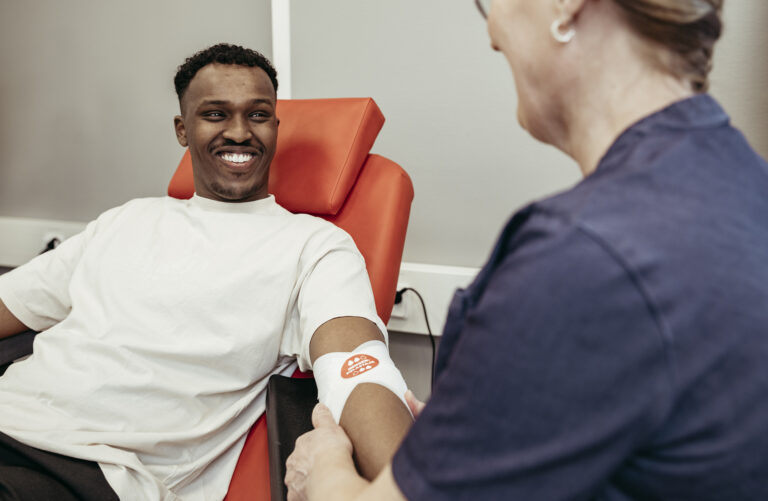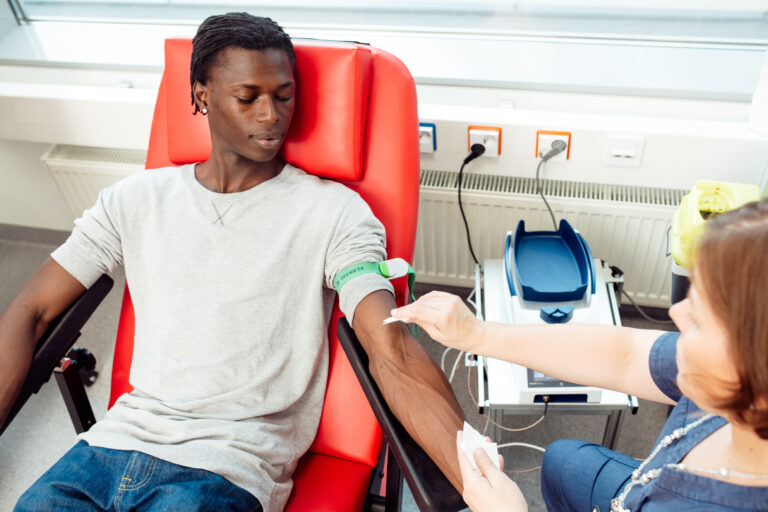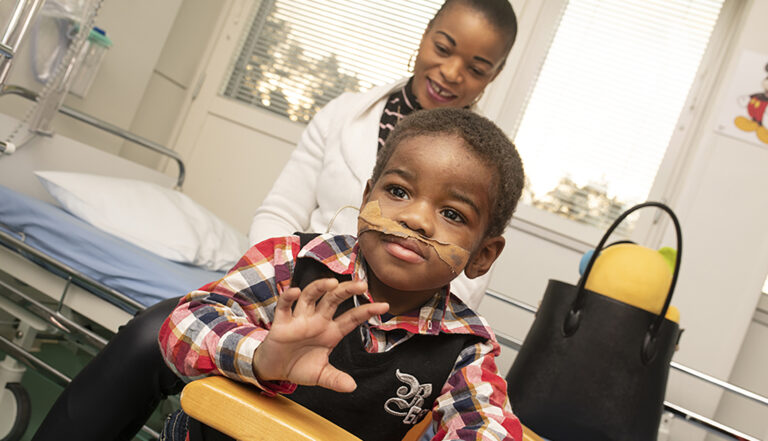
Donating blood is an easy way to help people
Do you want to help others? Donating blood is an easy way to help, and it doesn’t cost anything.
You can probably donate blood if
- you are between 18 and 59 years old,
- you weigh between 50 and 199 kilograms,
- you understand Finnish, English or Swedish, and
- you have a Finnish ID number.
Many common medicines and diseases do not prevent you from giving blood. You can donate blood even if you take medicines to lower your blood pressure or cholesterol. Blood donors must not have any serious medical conditions.
How to donate blood
You can donate blood on weekdays at any Blood Service donation site. There are donation sites all over Finland. You can find your nearest donation site on the Blood Service’s website.
- Book an appointment to donate. You can also come to the donation site to ask about walk-in appointments.
- Complete the electronic health questionnaire for donors on the day of your appointment or, at the earliest, on the day before.
- Check in at the blood donation site when your appointment begins. You will need photo ID such as a passport or driving licence to check in.
- A nurse will review the health questionnaire with you and measure your haemoglobin from your fingertip.
- The actual donation takes around ten minutes
- After donating, take it easy and enjoy a snack provided by the Blood Service.
In total, your appointment to donate blood will last about an hour.
If you are nervous about donating blood, please tell a Blood Service nurse. We’ll take good care of you!
Blood donors from different backgrounds are needed in Finland
Nowadays, there are more and more people in Finland with a parent or grandparent who was born outside of Finland. This means that Finnish hospitals are also treating more patients from different backgrounds. It is therefore good for us to have blood donors from different backgrounds, too.
We all have the same main blood groups: A, B, O, or AB. Patients are generally given blood based on their blood group, and the donated blood helps everyone in the same way.
However, some medical conditions require blood with properties that have been very closely studied. A blood donor with a background that is as similar as possible to the patient may be needed.
Some patients require carefully selected blood donors
Sickle cell disease can be fatal in severe cases. It causes a person’s red blood cells to develop abnormally.
Sickle cell disease is more common in people with an African family background. The treatment of sickle cell disease often requires regular blood transfusions. In such cases, it is important that the patient’s and donor’s blood groups are as close a match as possible. That’s why it’s important to have enough blood donors with an African family background.
People with an African background sometimes have a rare blood group, U-. If a patient with sickle cell disease has this rare blood group, they will need a donor with the same blood group.


